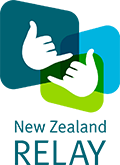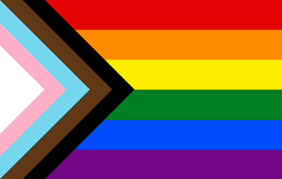Abortion is a well-established and safe health service in Aotearoa New Zealand. You have the right to get an abortion from a qualified health practitioner (nurse, doctor or midwife). You have the right to access abortion services without being harassed or intimidated.
-
Summary
Any pregnant person can have an abortion at any age, so long as you can give informed consent. This means you understand what is happening and can agree to it.
No one can force you to have an abortion or to continue a pregnancy.
It's your choice who you tell about your pregnancy or abortion. No one will be told without your permission.
You can contact an abortion provider yourself without having to go to another doctor or nurse (self-refer).
You don't have to go to counselling to have an abortion.
-
-
A human right
The right to health - including reproductive health and abortion - is a fundamental part of our human rights.
Everyone has the right to make their own decisions about their sexual and reproductive health, to exercise rangatiratanga, and to decide if and when to have a child.
Rights are guaranteed by te Tiriti o Waitangi
Māori rights to equitable health outcomes are guaranteed by te Tiriti o Waitangi. These rights are reinforced by the United Nations Declaration on the Rights of Indigenous Peoples. Māori, in the context of abortion, have the right to enact rangatiratanga or self-determining rights and mana motuhake or autonomy over their own bodies and reproductive health and wellbeing.
Abortion law in Aotearoa New Zealand
Abortion is regulated under the Contraception, Sterilisation and Abortion Act 1977 and a number of other health laws. There are different rules for abortions under and over 20 weeks.
Up to and including 20 weeks of a pregnancy, a qualified health practitioner can provide an abortion to a pregnant person who requests it.
After 20 weeks of pregnancy, the health practitioner will need to consult a second health practitioner, and decide whether an abortion is clinically appropriate. They must consider:
- legal, professional, and ethical standards
- the pregnant person’s physical health, mental health and overall well-being, and
- the gestational age of the foetus.
It is a criminal offence for anyone other than a qualified health practitioner to provide an abortion.
No age limit
Any pregnant person can have an abortion at any age, so long as you can give informed consent. This means you understand what is happening and can agree to it.
Any pregnant person can refuse to have an abortion. No one can force you to have an abortion or to continue a pregnancy, no matter what age you are.
No upper time limit to have an abortion
New Zealand law does not set an upper time limit to have an abortion.
Abortions for pregnancies over 20 weeks are very rare, and New Zealand does not have many doctors who provide them. Abortions after 20 weeks are mostly wanted pregnancies but some people may seek abortion after 20 weeks for personal, medical or mental health reasons. A team of health practitioners will be involved with these abortions.
You decide who knows
It's your decision who you tell about your pregnancy or abortion, including your sexual partner, parents or whānau. No one will be told without your permission.
No one else needs to give their permission (consent) for you to have an abortion. It's your decision. Your well-being and safety are most important and therefore abortion services remain private and confidential unless you're believed to be at risk of immediate harm.
The nurse, doctor or midwife providing the abortion need to know that you understand the abortion procedure and that you're able to give informed consent for it to happen.
A parent or legal guardian of a young person would only need to be told if the nurse, doctor or midwife does not believe the young person is able to make an informed decision themselves.
If you're a young person, it's a good idea to talk to a parent or another trusted adult if you can. If you do choose to have an abortion, it's good to have adult support.
-
You can self-refer
Pregnant people can self-refer to an abortion service.
This means you can contact an abortion provider in your region directly to make an appointment. You do not need a referral from your doctor.
How to access abortion services
You should be able to access abortion services without being harassed or intimidated
Regardless of where you're going for abortion care, if you're harassed or intimidated, for example by people holding signs, or if someone tries to speak to you about abortion, you should report it to the abortion provider.
A law was passed that means Safe Areas can be created around abortion providers to prevent this behaviour.
Where an abortion provider has created a safe area around a service, it's illegal for anyone to harass you, intimidate you or try to talk to you about abortion when you are entering the service.
You can change your mind
You can change your mind about having an abortion at any time before it takes place. If you're having an early medical abortion, once you've taken the medication, you can't stop or reverse the abortion.
You can ask for counselling before you decide to have an abortion. An experienced counsellor will help you explore your feelings and options. Contact your local abortion provider and ask for pregnancy options counselling.
Counselling is available, but it’s your choice
You don't have to go to counselling to have an abortion. Many people are sure about their decision, but some want to talk through a decision with a counsellor.
You can decide whether to have counselling or not. If you choose to have counselling before or after your abortion, this will be free for New Zealand citizens and residents.
The right to choose not to provide abortion services
Health practitioners, such as midwives, nurses and doctors, have the right to choose not to provide abortion services (or contraception or sterilisation) because of their personal beliefs. This is known as “conscientious objection”.
If your health practitioner will not provide abortion services because of a personal belief, they must provide you with the contact details of the nearest abortion service at the earliest opportunity.
Making a complaint
Abortion is a health service in Aotearoa New Zealand. Health practitioners must follow the law, as well as certain regulations, standards and guidelines.
If you want to make a complaint about the service you received through an abortion provider (such as the GP/health practitioner's office, clinic or hospital where you received the abortion or abortion medication) contact the abortion provider directly.
If you want to make a complaint about the service you received through DECIDE, see the Feedback and complaints page.
For help, you can contact the Nationwide Health and Disability Advocacy Service.
You can also contact the Health and Disability Commissioner directly for concerns about health and disability services.
-
-
Considering abortion?
Find out about abortion services in Aotearoa New Zealand, including who can perform an abortion, and how to access abortion care.



